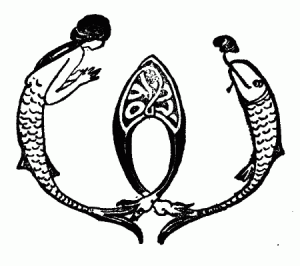Robin Hood’s Visit to Longdendale.
Robin Hood, the greatest bowman that old England ever knew, frequently visited Longdendale. Probably the “thick woods of Longden,” with their wealth of wild red deer, induced him to lead his band from the haunts of merrie Sherwood to the no less merrie land of Longdendale.
Old traditions tell of a “mighty forest in Longdendale, whose trees were so thick that the squirrels could leap from branch to branch from Mottram to Woodhead.” Such a country might well attract a lover of the free forest life like bold Robin Hood; moreover, there ran a road over a good portion of Longdendale, along which the fat old Abbots of Basingwerke were wont to convey their treasures from their township of Glossop, to their fine abbey seat in Wales. Doubtless the Abbot dreaded a meeting with the mighty outlaw, for Robin dearly loved to pluck a fat-bellied churchman that he might place the golden nobles in the pouches of the poor.
This story, however, has nothing to do with the robbing of the Abbots or Monks of Basingwerke. It is a story of skill and fabulous strength. Indeed, there are many who doubt that the incidents related ever occurred—simply because such things seem impossible. But then those incidents are recorded in the traditions of the people of Longdendale, and, consequently, they are worthy of serious consideration. He must be either an amazingly bold or an exceedingly ignorant man, who would cast a doubt on the veracity of a Longdendale tradition. Read more »


